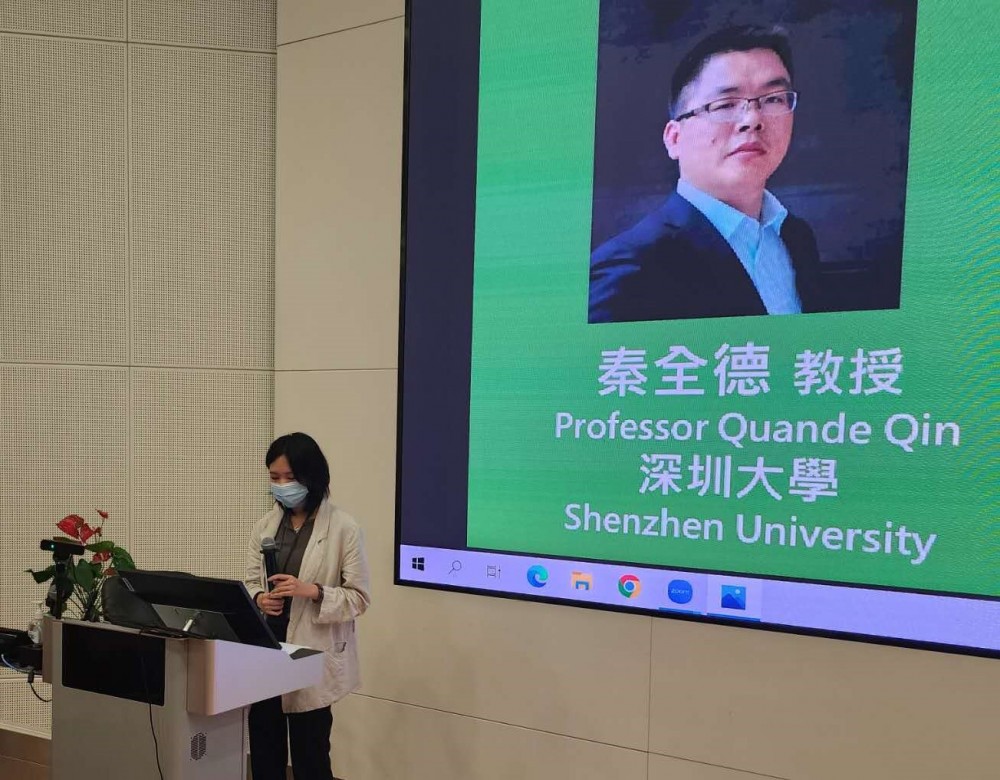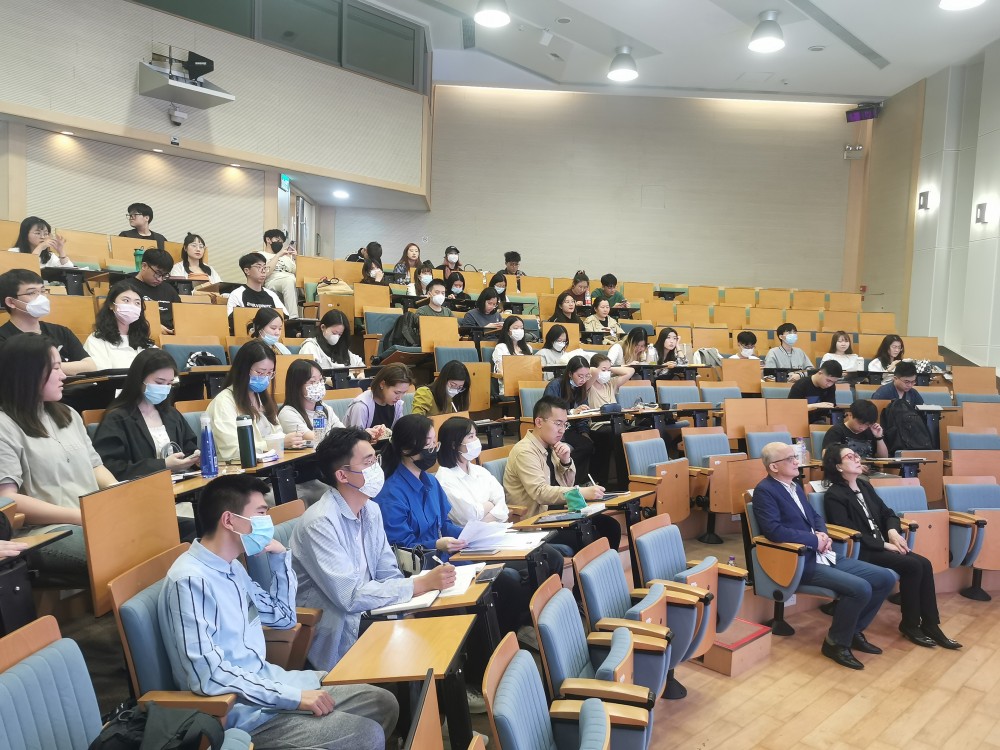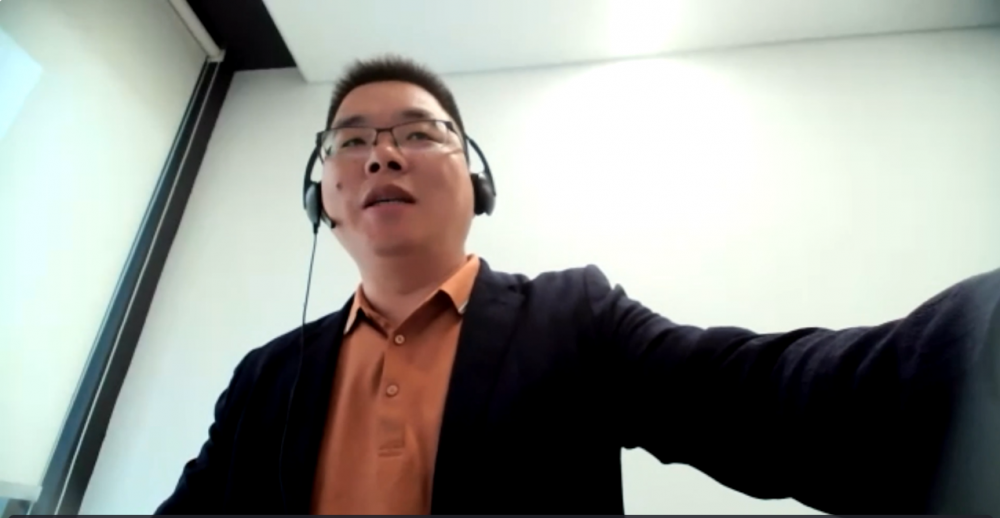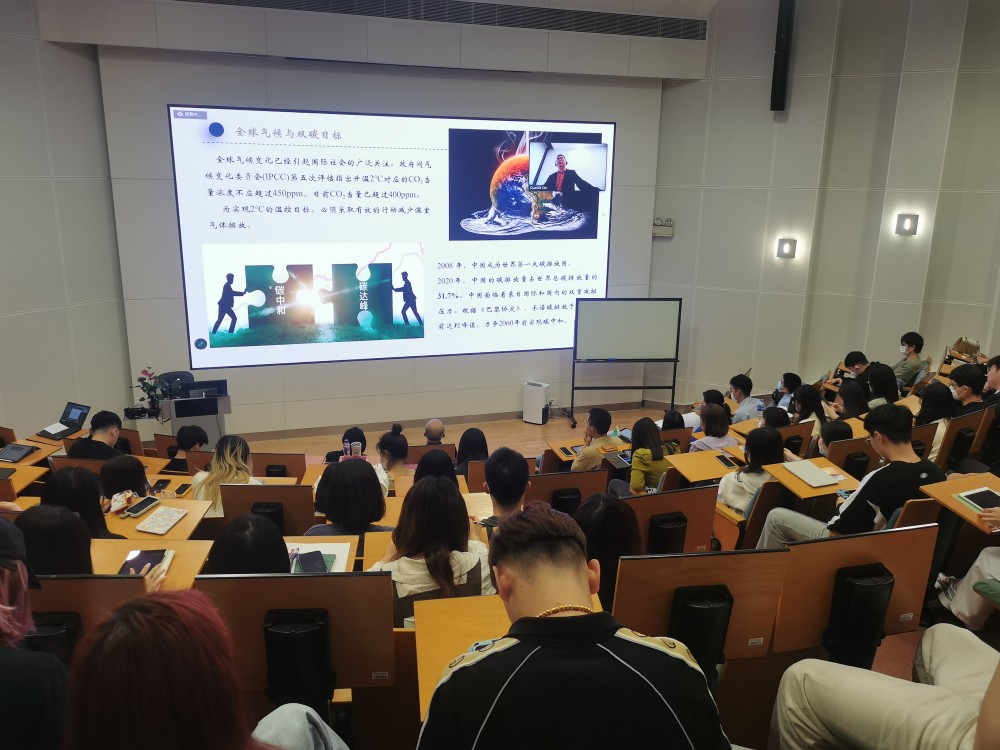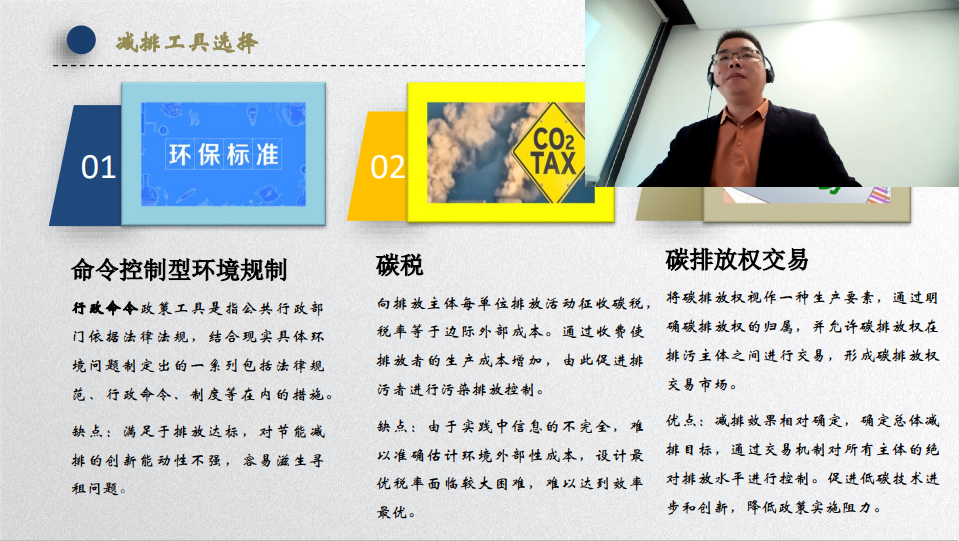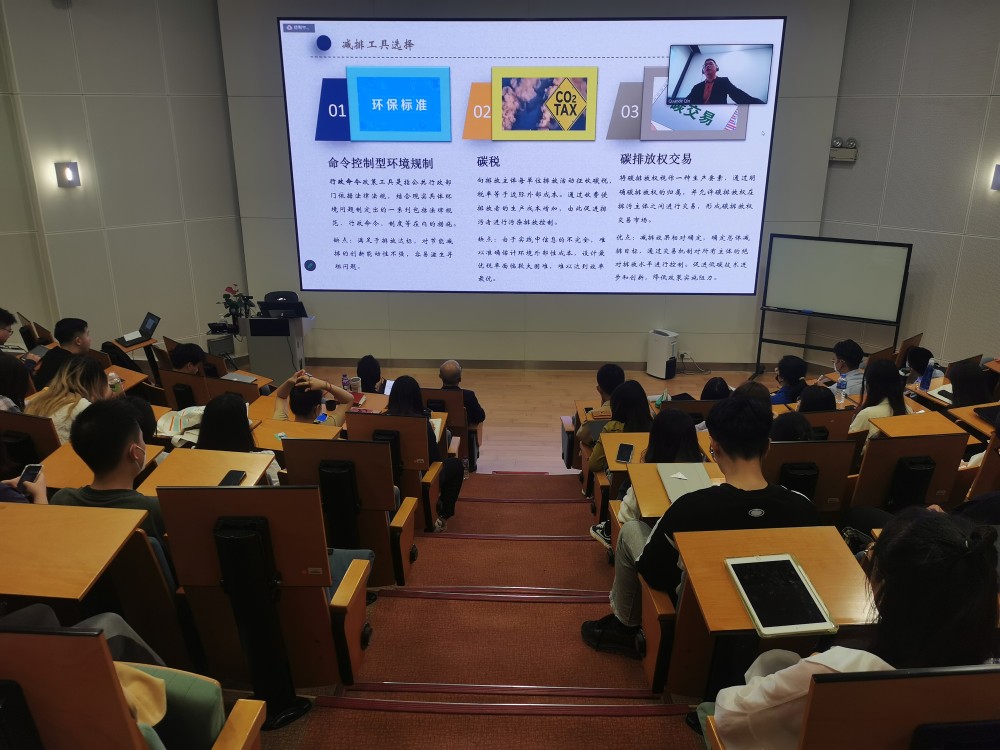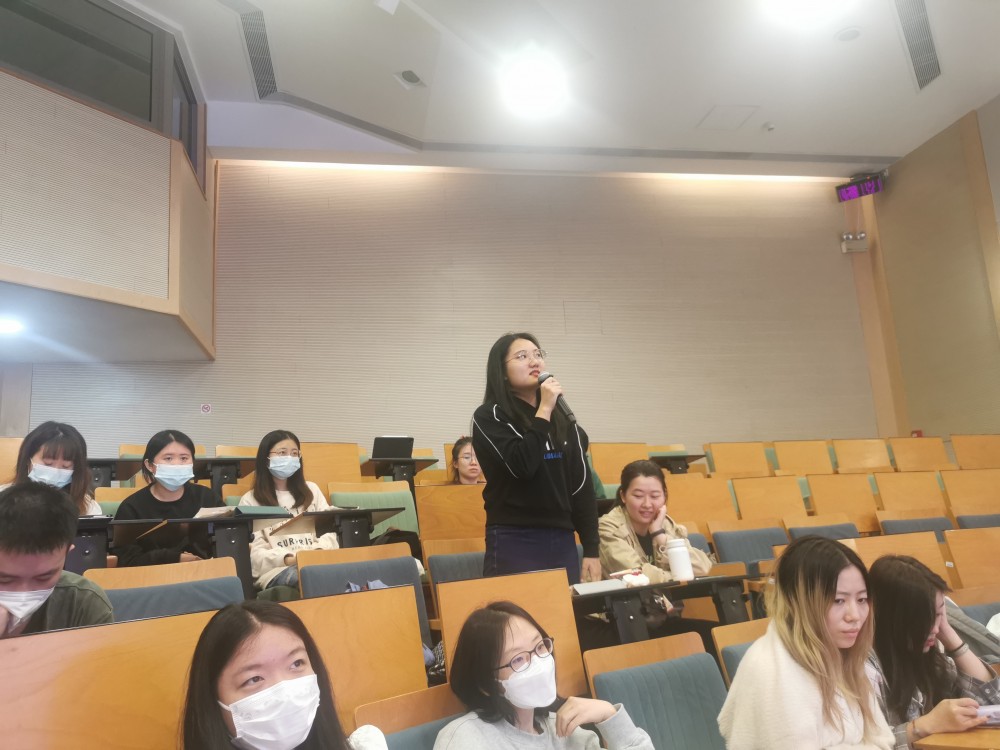On 13 April 2023, the Faculty of Finance of the City University of Macau held the Finance Seminar Series [26] at the Ho Yin Convention Centre. Professor Quande Qin of Shenzhen University was invited to deliver a speech titled “Research on Hybrid Forecasting Modeling of Carbon Price in Emission Trading Scheme”. Guests attending this seminar include Dean Adrian Cheung and Associate Dean Eva Khong of Faculty of Finance, City University of Macau.
Professor Qin first shared the research background of mixed prediction modeling of carbon emission trading market price. Global climate change has aroused wide concern in the international community. In order to achieve the goal of 2℃ temperature control, effective actions must be taken to reduce greenhouse gas emissions. In 2008, China became the world's largest carbon emitter. In 2020, China's carbon emissions accounted for 31.7 percent of the world's total. China is under both international and domestic pressure to cut emissions, pledging under the Paris Agreement to peak its carbon emissions by 2030 and aim for carbon neutrality by 2060. Professor Qin proposed three options for emission reduction tools, namely administrative orders for controlled environmental regulation, imposing a carbon tax on each unit of emission activity by emitters, and forming a carbon emission trading market.
Professor Qin made a comparison between carbon tax and carbon trading, and stated that, purely theoretically speaking, both measures are economic measures with market efficiency. The main difference is that the carbon price of tax means is set by the government, while emissions fluctuate according to market supply and demand. Under the carbon tax policy, the carbon emission within a certain period is relatively uncontrollable, so the carbon tax means is called "price-based" economic means, while the carbon price fluctuates with the number of tradeable quotas and social and economic conditions within a certain period, which is called "quantity-based" economic means.
Professor Qin stated that the large fluctuations lasting for a long time and the relatively weak periodicity make it impossible for enterprises to draw conclusions on the trend of fluctuations. This study aims to analyze and forecast the immature carbon finance market and has important implications for enterprises and organizations to actively explore and develop carbon finance business. The research on carbon price prediction can be divided into three directions, namely, multivariate analysis, time series and multi-source data drive. The carbon market is a typical nonlinear socio-economic complex system, and its market price series is a chaotic time series with high noise, nonlinear and non-stationary in nature. Then, Professor Qin reviewed time series models and literature, and conducts a multi-scale analysis of complex financial markets through a hybrid forecasting modeling framework.
Lastly, as for the frontier prospect of carbon price hybrid prediction, Professor Qin shared that deep learning networks should be developed to capture the correlation of spatiotemporal and high-dimensional variables. It is necessary to set different assumptions for traditional machine learning, on how to solve non-convex programming problems with multiple regularization terms and complex constraints, and to generalize the solution to online form to adapt to the immediate financial modeling needs. Some multi-source data-driven prediction research combines multiple machine learning models, integration strategies, or integration schemes with multiple multi-scale decomposition techniques. The point prediction results obtained from the existing complex hybrid prediction framework are extended to the interval prediction, and the fluctuation density prediction is obtained by using statistical techniques. The regression results are then applied to broader financial engineering issues.
At the end of the sharing session, students took this valuable opportunity to actively pose questions related to measurement modeling in the research, and Professor Quande Qin answered in detail. In the Seminar, the students paid attention to the relationship between carbon emissions and the economy, which is helpful to grasp the current development trend of the financial economy. The students also expressed their expectations for the sharing of the next finance seminar.



